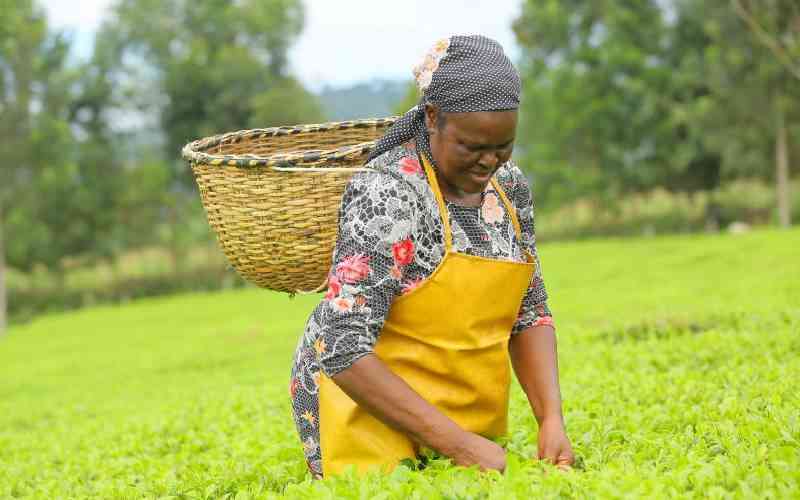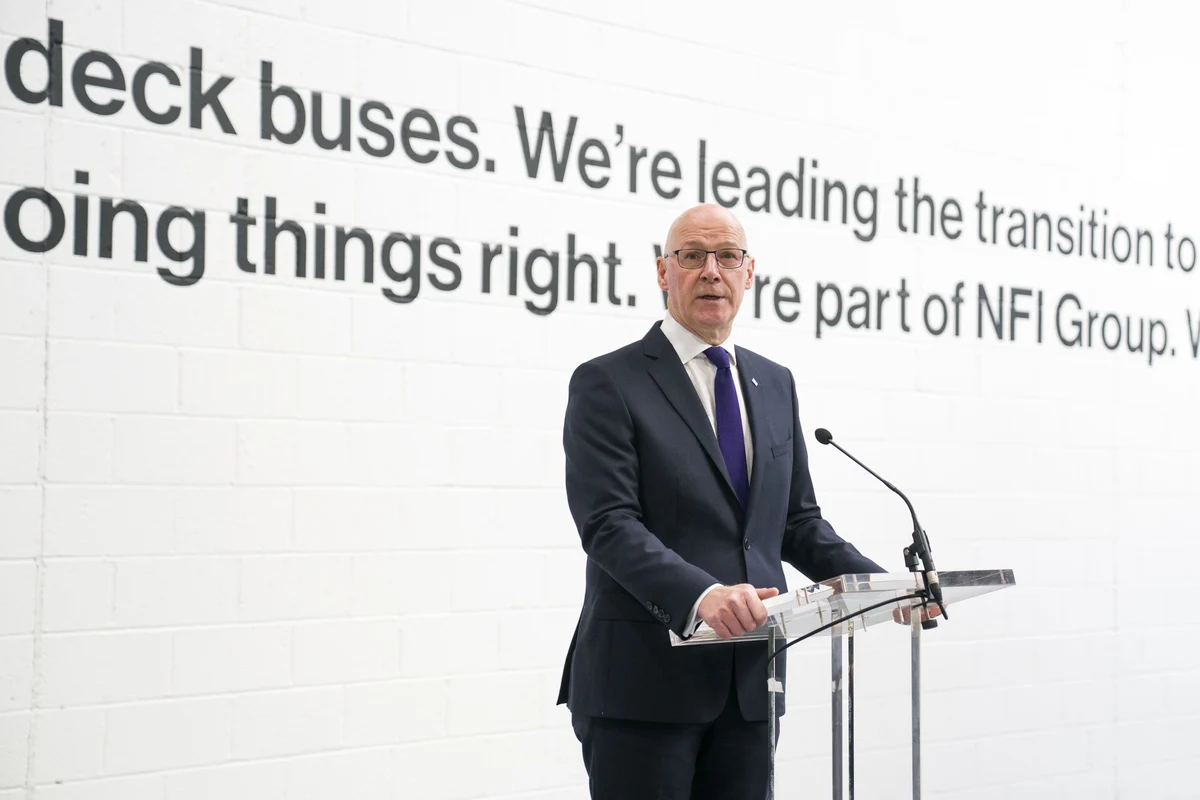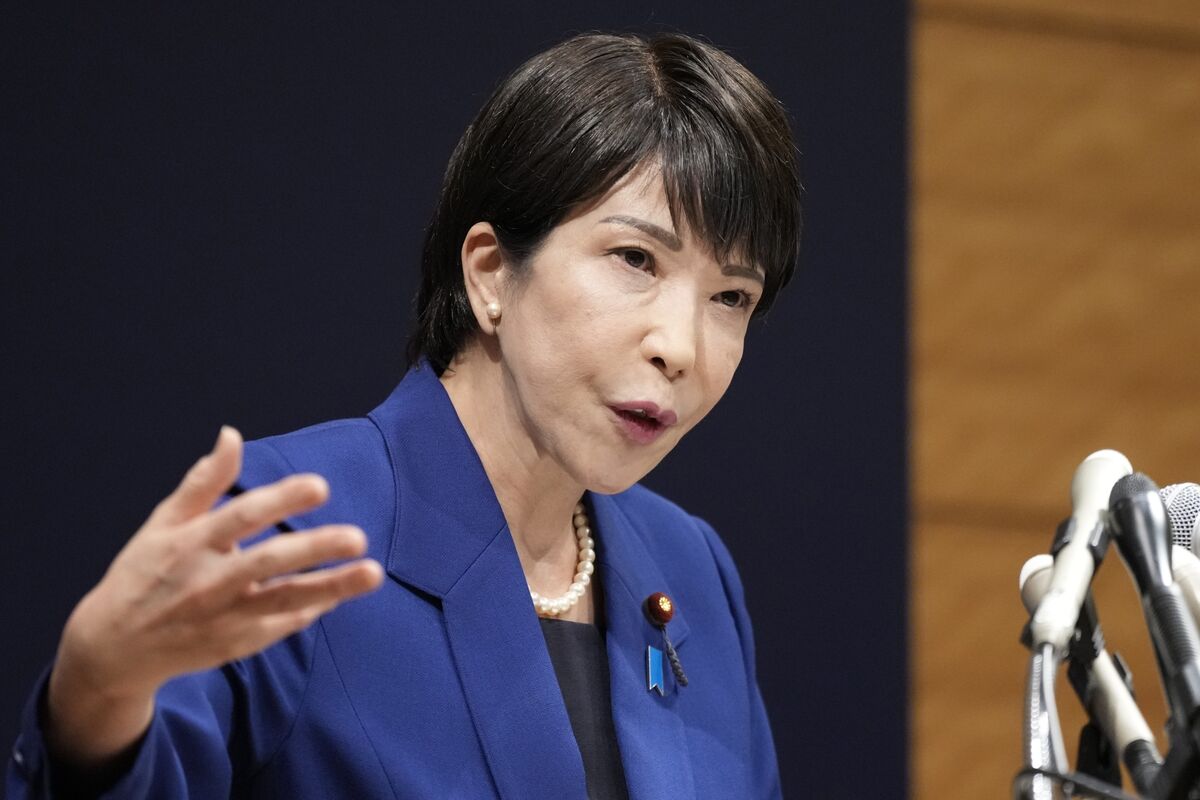By Brian Ngugi,Standard Business
Copyright standardmedia

Nyansiongo Tea Factory Director Monica Orwochi picks tea in her Ribwago farm, Borabu, Nyamira County, on May 6, 2024. [File, Standard]
More than 250 Kenyan tea farmers and workers are calling on the UK government to introduce new mandatory Human Rights and Environmental Due Diligence (HREDD) legislation.
They argue that such a law is essential as it will guarantee that British companies and buyers of Kenyan tea scrutinise their supply chains for abuse and environmental harm and create a legally binding framework for fairness.
They say the proposed law is critical to compel British companies to scrutinise their supply chains, ensure the payment of living wages, eliminate human rights violations and environmental harm, and further establish a legally binding framework that guarantees fairness and equity for producers.
Kenya is one of the largest source markets for British tea buyers and tea from small Kenyan farms often ends up in speciality teas in the UK. But low prices, rising temperatures, and erratic rainfall have been pushing farmers to the brink.
The demand comes in a letter signed by smallholder farmers and estate workers from four key producer organisations: Nduti Tea Factory Company Ltd, Gacharage Tea Factory Company Ltd, Momul Tea Factory Company Ltd, and Browns Tea Estates. Many of these farmers supply leaves that end up in specialty blends sold by major British brands.
The signatories highlight a growing moral and commercial pressure on rich-nation buyers to ensure that their consumption does not fuel poverty or environmental degradation in supply countries.
Kenya’s long-suffering tea farmers and workers have endured meagre earnings for the globally renowned beverage, well known for its exceptional quality and its use in blending with other varieties worldwide.
Although the industry employs millions of Kenyans directly and indirectly, many continue to suffer low incomes due to a dysfunctional system that appears to favour middlemen and other “cartel” members, according to the government.
“The scales of the global tea trade are not tipped in favour of those of us growing and picking the leaves behind your cup of tea,” the farmers wrote. “The price we earn today for the hard work behind your favourite drink is just too low. As this continues to drop, our outgoings are rising, and this simply cannot continue.”
The Kenyan government and industry analysts contend that it is no longer acceptable that Kenyan tea continues to fetch premium prices globally with tea consumers paying top dollar, yet the farmers and tea workers receive abysmal proceeds that cannot even cover daily production or living costs.
The result has been low earnings, which have seen thousands of farmers abandon the crop and labourers strained.
Their push for UK’s due diligence laws mirrors wider global movements targeting corporate accountability, particularly aimed at British multinationals that have in the past been fingered for human rights breaches in their overseas operations.
These initiatives aim to enhance the farmers’ earnings and uplift their financial well-being, ensuring that a greater share of the end-consumer price makes its way back to the producers.
The letter highlights how climate vulnerability exacerbates economic challenges, noting that “the rapidly changing climate is making it harder and harder to grow our delicate tea leaves.” They warn that “by 2050, climate change is expected to reduce the conditions for growing our tea here in Kenya by a quarter.”
The farmers and workers make clear that voluntary corporate social responsibility programmes have proven insufficient. “Many of the people picking tea on estates around the world earn significantly below what is considered a ‘living wage’,” they wrote, linking low wages to poor living conditions, gender inequality, and a lack of safety protections.
The demand for HREDD legislation is now gaining traction among ethical trade advocates and some policymakers in Europe and the UK, who argue that transparency and mandatory obligations—rather than voluntary codes—are necessary to protect vulnerable workers and farmers in global supply chains.
Appealing directly to British MPs and consumers, the farmers concluded: “As tea drinkers, and MPs in the UK, you have the power to change lives alongside the people behind your favourite brew. Will you use your power for good?”
The Standard could not immediately reach the UK Department for Business and Trade.
It has previously acknowledged challenges in supply chain fairness but its yet to commit to the kind of sweeping mandatory legislation demanded by the farmers and supported by NGOs like the Fairtrade Foundation.
As climate pressures intensify and production costs soar, the Kenyan farmers warn that the future of Kenya’s tea sector—and the stability of Britain’s favourite brew—depends on radical market reform.



